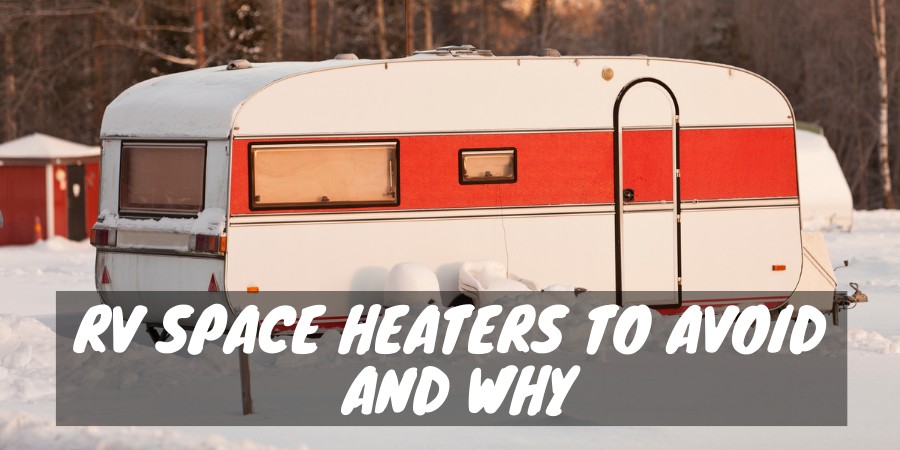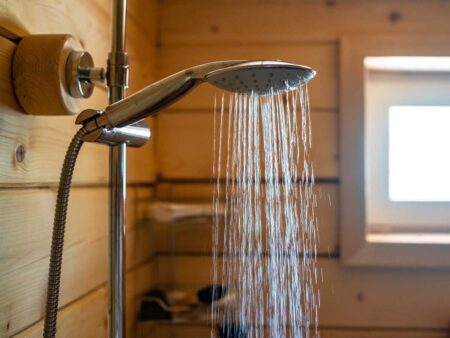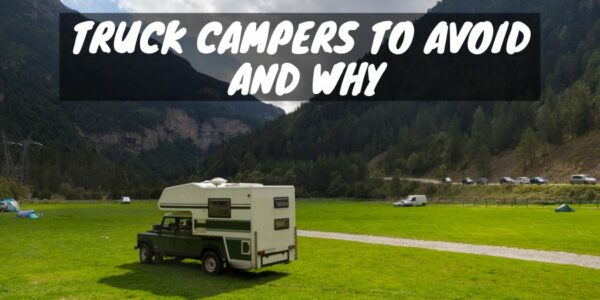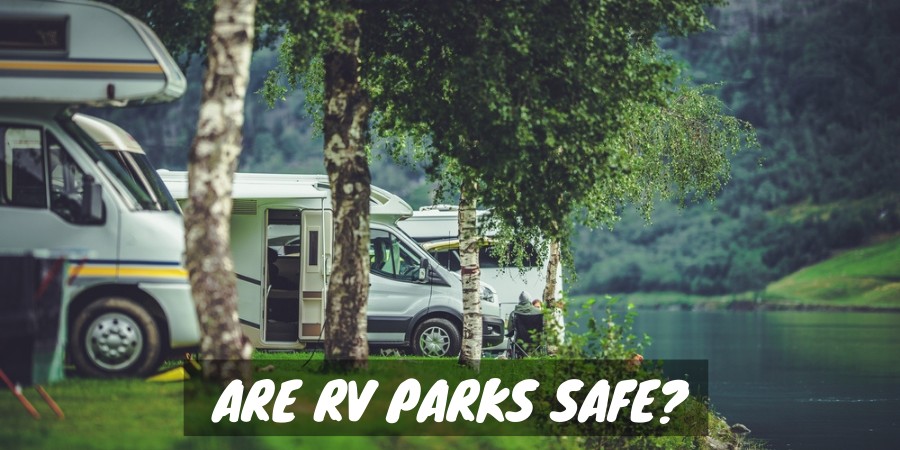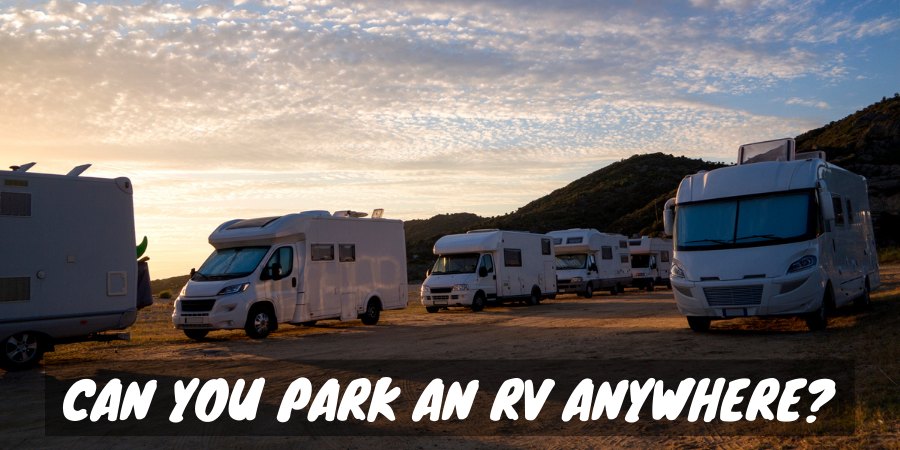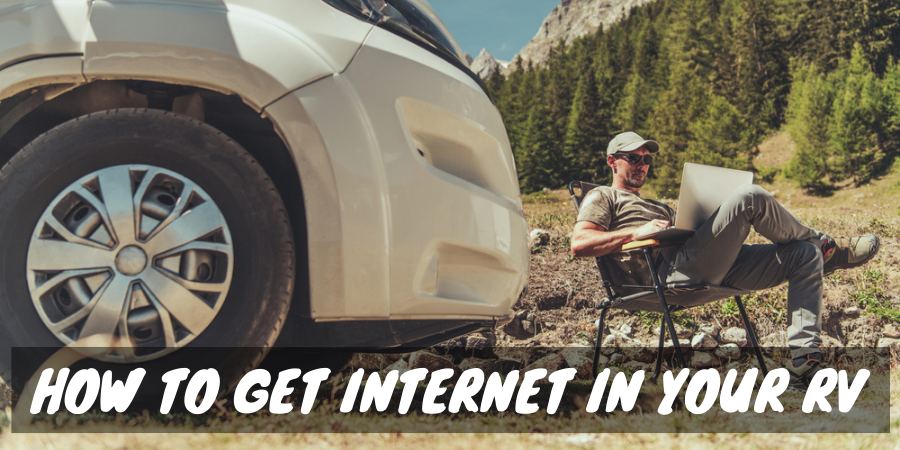Do space heaters and RVs belong together? And are they safe?
Absolutely, you can totally use a space heater in your RV, whether you’re looking to stay cozy during winter camping or just wanna knock off the chill on those cool mornings or evenings, no matter the season.
There are also times you’ll need a portable space heater, like if you run out of propane or your furnace breaks.
The essential part is to make sure you purchase the safest space heater for RVing you can find and operate it wisely.
To help you navigate the RV space heater topic, I put together this guide.
Down below, I explain the use of space heaters in RVs, which types are best for camping or boondocking, and which models to avoid and why.
The more you know about the right space heaters to use in your RV, the safer and warmer your camping adventures will be!
Which Space Heater Can You Use in a Camper or RV?
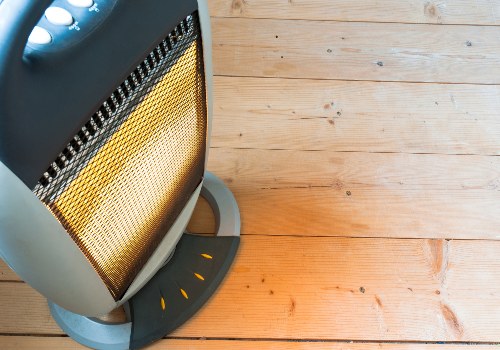
Space heaters work great in RVs as they are already portable and made to warm a single large room.
The two main ways to power a space heater are electricity or fuel like propane or kerosene.
There are also several styles of space heaters, including:
- Ceramic
- Infrared or radiant
- Convection
- Micathermic
Each of the space heater styles emits heat differently, so getting the right fit for your camper and personal comfort can take some trial and error when you don’t understand how each operates.
Ceramic
Ceramic heaters use plates inside the unit that heat up quickly, and a fan blows the heat out into the room. The outer surface of a ceramic heater stays cool, which is a nice feature.
Radiant
Radiant heaters (also called infrared) use noiseless wavelengths of heat to warm objects and not the air. Couches, clothing, carpets, and skin all absorb the heat, and eventually, those objects transfer the heat to the air, so the whole space feels cozy.
Radiant heat is quiet and efficient and feels like standing in a ray of sunshine.
Convection
Convection space heaters have air touch the heating elements, where it warms up and rises. The cooler air in the room will fall downward, coming in contact with the elements and warming up, creating a cycle of circulation that will warm a room but very slowly.
Oil and water-filled space heaters work by convection. In some convection models, a fan pushes the air over the elements and into the room, which increases the speed as the room warms up.
Micathermic
Micathermic heaters blend both radiant heat and convection to send heat waves out into the room, where they warm whatever they touch.
The heating element in these styles of space heaters is made of mica, as it’s a fantastic conductor of heat. This style of heater has no fan, which means it’s quiet to operate.
Space Heaters to Avoid in a Camper and Why
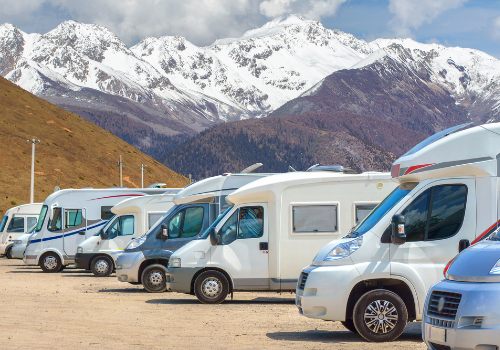
You should avoid using a fuel-based space heater in a camper whenever possible.
Gas, propane, kerosene, and oil-powered space heaters can be dangerous in the tight quarters of a camper for these reasons:
- FIRE – These heaters burn very hot and can cause a fire when set too close to furniture or fabrics that easily combust. The fuel within the space heater can also catch fire if the unit accidentally tips over.
- BURNS – The exterior surfaces of these types of heaters often have a metal “cage” that still gets quite hot and can burn skin or clothing. Kids and pets have the most risk of burns, as more of their body can contact the heater when squeezing past it to access another area of the camper.
- CARBON MONOXIDE POISONING – Burning fossil fuels consumes oxygen from the air and exhausts carbon monoxide. In a camper’s small space, the effects of lack of oxygen are felt much quicker than in a home. Proper ventilation is critical to avoid asphyxiation from fuel-based space heaters, but opening windows during the cold of winter defeats the purpose of the heater in the first place. Since carbon monoxide is odorless and colorless, people often get sick and disoriented and don’t realize they are at risk of death.
- GENERAL AIR POLLUTION – Fuel-based heaters emit other pollutants aside from carbon monoxide. Sulfur dioxide and nitrogen dioxide are two other dangerous gases that are emitted from space heaters. For people with asthma, who are pregnant, elderly, or have heart disease, even low levels of these pollutants can cause harm.
- EXPLOSIONS – Although rare, explosions can happen if you fill the heater with the wrong type of fuel or it runs in an area where a build-up of flammable fumes has formed.
With so many other space heating options for campers, there isn’t a need to use a fuel-based heater unless you plan to camp off-grid.
The next type of space heater you need to avoid in a camper is oil-filled or water-filled heaters. These units tend to be heavy and bulky, which is a poor fit inside a camper during use, and even harder to store away when not in use.
I also find the oil-filled radiator-style space heaters to take a long time to warm up an RV, which isn’t very helpful when you want immediate heat after a brisk hike in frigid temperatures.
What Is the Safest RV Space Heater?
The safest RV space heater is an electric micathermic style, such as the De’Longhi Mica Thermic Panel Heater HMP1500.
Micathermic space heaters bring the best of both worlds together by forging radiant and ceramic heating into one unit that is safer and more energy-efficient than other styles.
The heat does not dry out the air inside the camper yet reaches into every nook for impressive warming. The slim design makes it easy to set out of the way, so you aren’t tripping over it.
Micathermic heaters also don’t use a fan, which means the heater is quiet and relaxing. A built-in thermostat and adjustable heat settings are more reasons to choose this style.
Radiant heat and ceramic electric space heaters are also perfect for campers and RVs as new models incorporate plenty of safety features such as automatic shutoff in the case of a tip-over or electrical faults.
These portable space heater models also keep cooler to the touch over other styles, so you have less risk of burns.
The best part about these two types of heating styles is that they can create a lot of heat fast, and the internal fan shoots it out where you want heat most.
Great Space Heater Features to Look For
Thermostat
A thermostat is a fantastic feature to look for in a space heater for a camper because you can set a temperature and not have to keep monitoring the unit.
A sensor in the space heater will detect the room’s ambient temperature and shut the unit on or off to keep it consistent.
Timer
Want to Connect With a Community of Over 1,078 RV Enthusiasts?
I love the timer on my space heater. On chilly mornings, I have it pop on and run for about an hour, so the whole RV is comfy when I get out of bed.
Remote Control
Look for a space heater with a handy remote control. It’s nice to turn off the unit without having to get out of bed or off the couch.
What Is the Best Space Heater for Camping Off-Grid?
Are you looking for the best heater for RV boondocking? A dependable model that’ll keep you warm is the Mr. Heater F232000 MH9BX Portable Propane Heater.
Mr. Heater offers a range of propane camper heater models to fit any size RV. You can hook the heater to a one-gallon tank for about five hours of heat or a 20-gallon tank for days of warmth.
If you need a space heater that can run without electricity, the Mr. Heater brand delivers the most reliability and safety options for a fuel-based unit.
Safety Tips for Using a Space Heater in a Camper
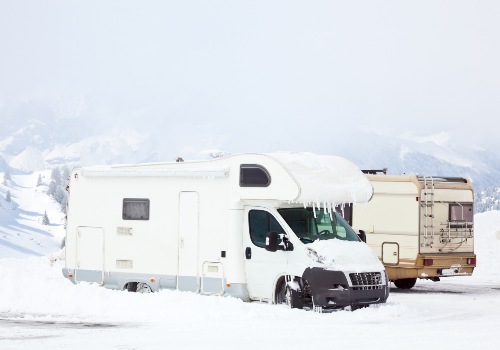
The safest space heater for an RV is one that you use correctly. From the extension cord to the outlet to the settings, you need to take precautions to avoid overheating or overloading your RV’s electrical system.
With safe use, most space heaters should work just as well in a camper as they do in a home. The big difference is that an RV doesn’t have the fire safety standards of a house.
An RV will burn much faster, as walls are a wood composite, and fabric and furniture are abundant.
Campers are also more prone to electrical overloads from running a space heater, which can burn up the sparse wiring system or continually blow fuses.
I know that I cannot turn on my microwave or start the coffee maker in my RV if my small electric space heater is running as it immediately blows a fuse in my 30 Amp camper.
Here’s a quick list of safety tips for using a space heater inside a camper:
- Make sure your camper has smoke and carbon monoxide detectors
- Read the space heater manual and follow recommendations for use
- Do not leave pets or children unsupervised while a space heater is running
- Do not place the heater near flammable materials
- Provide ventilation if fuel-based
- Don’t leave the camper while the heater is running
- Only buy a heater with auto-shutoff for tip-overs or electrical overloads
- Only use extension cords rated for the amperage of your unit
- Never plug a space heater into a power strip as it may fail to trip the main breaker during electrical overload
- Inspect the cord daily for melting or burns that indicate power issues
Stay Toasty, My Camping Friends
With the right type, style, and safety features, you can use a space heater in an RV with confidence.
I should know because I have been full-timing for years in a furnace and propane-free RV. And my trusty electric space heater keeps us warm every winter without worries.
A space heater in a camper is nothing to fear when you use the information above to operate it correctly and select the best model for your needs!
"Man cannot discover new oceans unless he has the courage to lose sight of the shore."
-- Andre Gide

